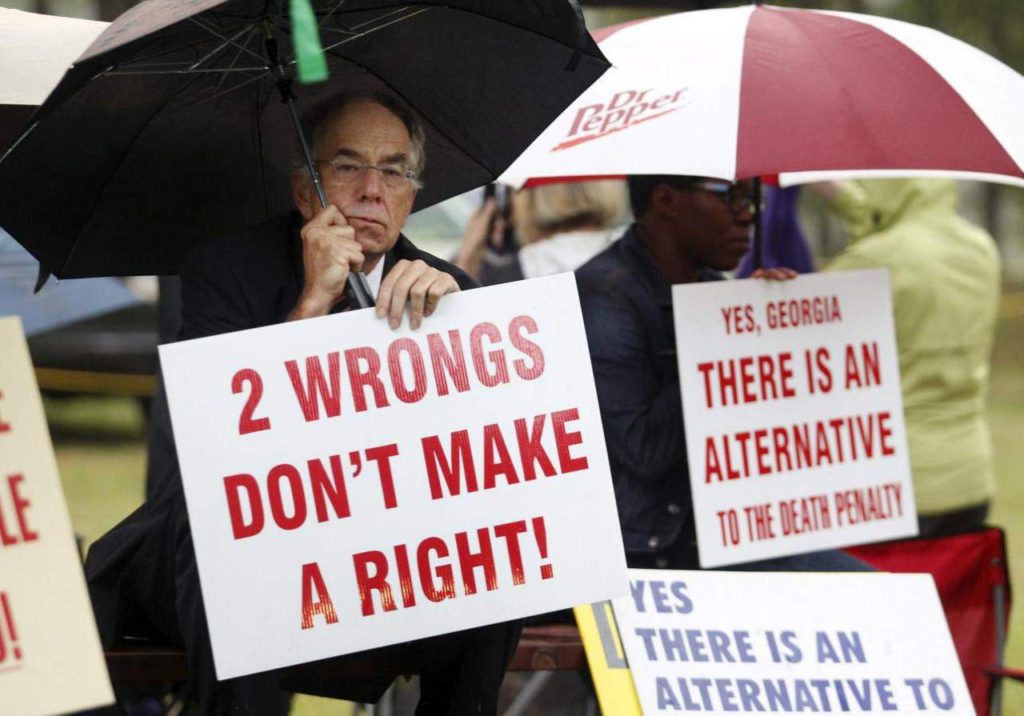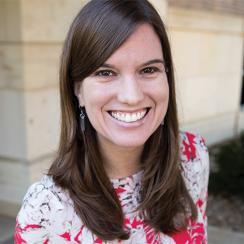Intersections luncheon features former Wartburg professor
A former Wartburg College professor returns to the Hawkeye State this week to tell the story of a friend and theology scholar who was put to death by the state of Georgia in September 2015. And she has some questions.
Jennifer M. McBride was board of regents chair in ethics, assistant professor of religion and director of peace and justice studies at Wartburg, a college of the Evangelical Lutheran Church of America in Waverly. She now is associate dean of doctor of ministry programs and continuing education, and assistant professor of theology and ethics at McCormick Theological Seminary in Chicago.
McBride first met Kelly Gissendaner — at the time, the only woman on Georgia’s death row — while directing a theology certificate program for the Atlanta Theological Association at Metro State Prison for Women.
“(Kelly) arrived for class beaming with excitement about the journey she was about to begin — participation in a yearlong academic theology program sponsored jointly by four Atlanta seminaries,” McBride wrote as part of a 2015 Op-Ed for CNN.
“That image of her on the first day of class remains vivid to me because it captures the core of who Kelly is — who she has become: someone full of contagious joy and gratitude, open to others and to new experiences for growth and ministry.”
KELLY GISSENDANER
Gissendaner was convicted in a February 1997 murder plot that targeted her husband, Doug Gissendaner. Prosecutors successfully argued that Gissendaner convinced a man she had an affair with to kill her husband. That man, Greg Owen, accepted a plea of life with the possibility of parole and testified against Gissendaner, who was ultimately put to death by lethal injection on Sept. 29, 2015. It was the state’s first execution of a woman in more than 70 years, and remains one of only a handful of U.S. capital punishment cases in which a person who did not physically participate in a murder has been executed.

McBride says that by the time she met Gissendaner in 2010, a transformation already had taken place. A local pastor had been visiting with her for more than a decade, and she had been engaging for some time with the prison chaplain and various chaplaincy interns. The theology program widened Gissendaner’s lens by allowing a death row prisoner to be part of long-standing discussions and thinking on the Christian faith.
“She asked honest questions about her relationship to God, others and the world,” McBride wrote. “She read scripture and grappled with centuries-old theological questions. She discovered her authentic theological voice in the midst of this work.”
Gissendaner was especially drawn to the writings of German theologian Jurgen Moltmann, who often is referred to as the “theologian of hope.” Moltmann was a German soldier who surrendered to the British and became a nearly three-year prisoner of war in World War II, which is where he first read scriptures. Gissendaner wrote to him in 2010, and he wrote back, enclosing a handkerchief she was to use to dry her tears. The two shared several letters, and Moltmann attended Gissendaner’s graduation from the theology program where he, an acclaimed author and theologian, offered the commencement address.
Moltmann describes his labor camp transformation not as finding Christ, but as Christ finding him in his sadness and desperation. I believe he saw a kindred soul in Gissendaner.
INTERSECTIONS
McBride understands, as Iowa lawmakers consider reinstatement of the death penalty, that many groups and individuals will highlight data showing the impracticality and immorality of the death penalty on non-religious grounds.

“My primary aim, however, as a Christian theologian and ethicist, is to appeal to other Christians through the shared resources of our faith,” McBride said. “There are a lot of self-identified Christians in Iowa, some of whom are legislators, many of whom are ordinary citizens.”
What she wants to know is if these Christians really believe in God’s forgiveness — and whether it extends to everyone.
“The death penalty pushes the logic of my Christian faith to its outermost limits,” she said.
“Do we really believe that people can be redeemed, or do we just think that those of us who are pretty good, who aren’t that bad of sinners, can and should be redeemed? Am I willing to obey Jesus’ concrete commandments to love enemies, have mercy and do justice? Do we understand that the good news of the gospel rests on this truth: God’s justice is about restoration and healing, not punishment for punishment’s sake? Most importantly, do we believe that God is powerful enough to save both the victims and perpetrators of crime — indeed that this is what the reign of God is all about?”
Charles Crawley, president of the Inter-Religious Council of Linn County, is one of the organizers of the Intersections luncheon series in Cedar Rapids, hosted by the Interfaith Alliance of Iowa. He tells me that McBride’s discussion this Friday was scheduled before members of the Iowa Legislature announced they would debate reinstatement of the death penalty, but that he is pleased the religious community will have an opportunity to learn from McBride’s research and personal experiences.
Reservations for the luncheon are open through Tuesday; participants pay $10 at the door, which includes lunch. Email can be sent to crintersections@interfaithallianceiowa.org to reserve a seat.
For those unable to attend, much of McBride’s teaching and research regarding interaction between scholars and practitioners is part of her most recent book, “Radical Discipleship: A Liturgical Politics of the Gospel.” It draws on her years of experience in teaching theology in women’s prisons and her participation in the Open Door Community, an intentionally interracial and residential Christian activist and worshipping community in Georgia.
This column by Lynda Waddington originally published in The Gazette on Jan. 28, 2018. Photo credit: Tami Chappell/Reuters
